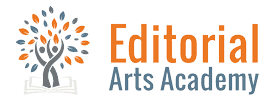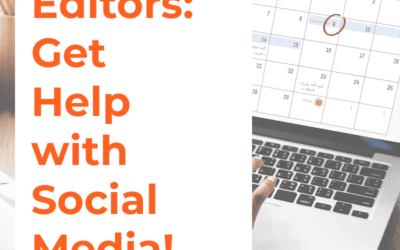Do you love to read and wish you could spend your life with books? Do you find errors in books and wonder how they got there? Do you cringe at misplaced apostrophes and rail at undeveloped character arcs?
If so, you may be a wordsmith who hasn’t reached your full potential — someone who has a natural affinity with language and the written word but hasn’t found a fulfilling and profitable way to express your gift.
It used to be me. I come from a family of readers and writers, and I grew up breathing literature and books. I earned an MA in English, but once in the real world, I had to earn a living, and I couldn’t find a job with the job description: “loves to read, loves to write, and has words and language in her DNA.” I longed to be independent and freely give my gifts while earning a living. On my time. In my office.
It wasn’t until I started freelance book editing that I felt I’d come home, and could expand and grow in my natural element: words!
Freelance Book Editing IS within Reach
Maybe you’ve thought about becoming a book editor but figured only people who really know their grammar can do that. Or that you’d need an MFA. Maybe you feel confident you can do the work of editing, but you worry that you wouldn’t know how to go about finding work, getting paid, and being successful at it.
Here’s the Big Reveal: You can be trained to become a freelance book editor and tap into a lucrative profession, one that is seeing an increasing demand as more and more books are coming onto the market. Freelance editing is absolutely something you can do.
Here are 5 Surprising Facts about Freelance Book Editing that you might not have known.
(Go here to download a PDF of the infographic with live links.)

1. It’s the ultimate side hustle
Whether you’re looking for a way to grow your income or you need a part-time job while caring for kids or during retirement, freelance book editing is a flexible and rewarding job you can do from anywhere.
Maybe you just want to work for a few hours on weekends, or maybe you have lots of time and would rather spend it at home (or a coffee shop, or wherever you want!) working on a book than being a clerk in a store or punching in at an office. I often take work on the road and work on the manuscript as I travel (with my husband driving). The point is, you’re in control of how much you take on.
2. You can make good money
Start at $25/hour and go as high as $60+/hour. Full-time freelance book editors can make six figures. See the Editorial Freelancers Association’s website to get an idea of what you can earn — but keep in mind that EFA suggested rates are based on a survey of a small group, and in reality, the rates freelancers charge are all over the map. As you add services, you can charge more per hour or per project. I currently offer coaching as part of my developmental edit package, and that bumped my price by $2,000.
Of course, what constitutes “good money” varies from person to person. But with rates starting at $25/hour, you’ll be making at least double the minimum wage in the U.S.
3. You don’t have to be great at grammar
Being a grammar maven is only ONE skill needed for a successful editing career. If you’re not always sure where to put a comma and don’t particularly care, maybe you have a knack for knowing what would strengthen a story, or you’re a fast reader who loves to write reviews on Goodreads — both of which would also be a solid foundation for an editing career.
Editors often have strengths in one or more skills, but not necessarily all of them. There are actually seven different editorial roles, each employing different skills you can offer to authors.
To find out how you can match these roles to your particular strengths, take our quiz to see where you fit and what roles would be best for you.
4. There’s no better time
Self-publishing grew by 38% in 2017, with over a million books self-published that year. With the accessibility of independent and hybrid publishing models, there are more indie authors than ever — which means high demand for all types of editors.
Our free ebook Begin Your Editing Journey: A Guide to the Best Resources for Aspiring Freelance Book Editors is packed with resources to help you seize the moment and get your book editing business off the ground.
5. You get paid to learn
Freelance book editors get paid to read and learn. And it’s not just the books that teach you something new every day. There’s always new tech, theories on story structure, and new publishing trends to discover. Being a freelance book editor is an opportunity to keep your mind active and engaged. That alone is worth jumping in and giving it a try!
If you’re ready to learn more about the life of a freelance book editor and how you can get started, subscribe to our mailing list. We send helpful tips, inspirational stories, and even discounts on relevant products and classes.



